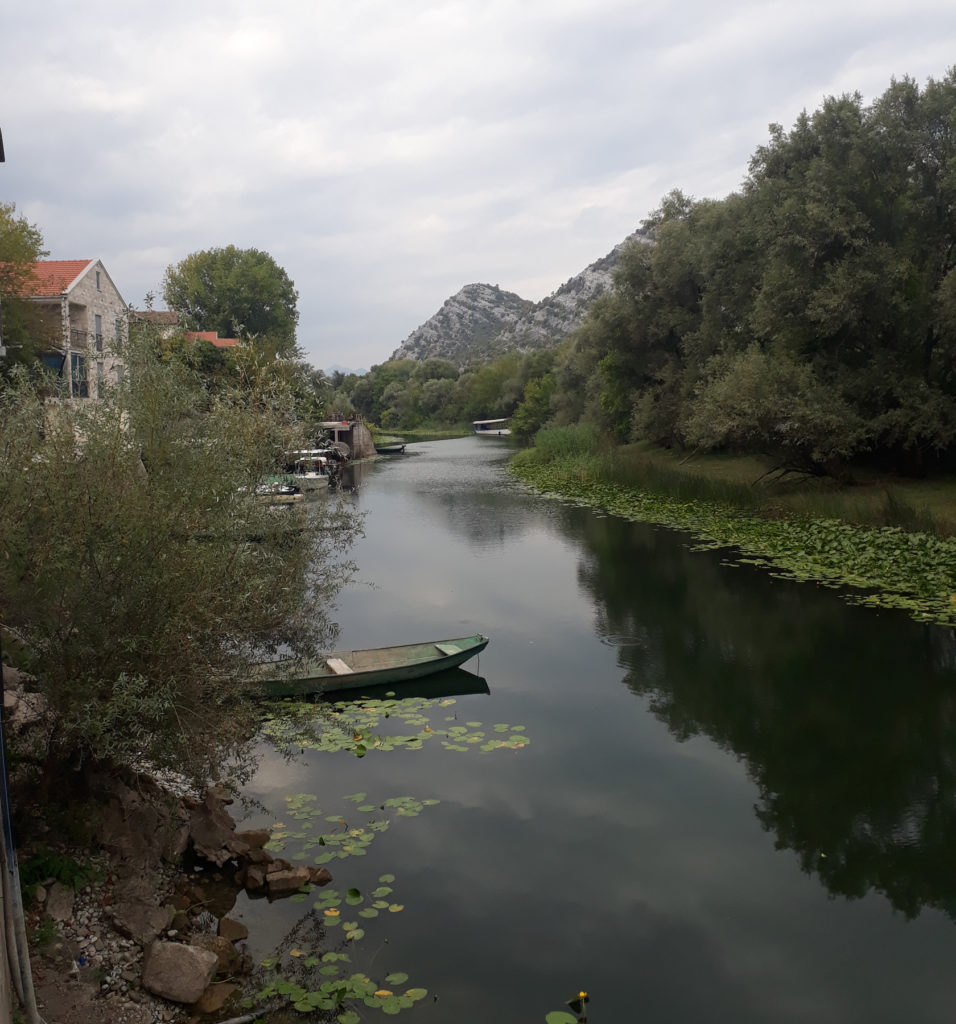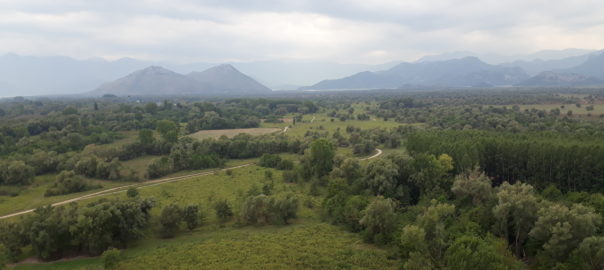Travel logs are really difficult because everyone’s travel experience in any place is going to be wildly different so in this one I tried to capture some of the things I experienced in my small slice of time in Montenegro .
The more I travel, the more I realize that there isn’t a perfect place. Everywhere on Earth is a pile of pros and cons and it’s up to you what you need and more importantly, what you don’t need. And I think I, personally, might need more Montenegro in my life.
If I had to summarize Montenegro in just one sentence it would be “more beautiful than I could have even imagined.”
I say this as a person who visited exclusively and the fact that the pictures I saw of the country were some of the most beautiful things I have ever seen in my life. I assumed it wouldn’t hold up in real life but actually it far exceeded my expectations. Which is a really new experience for me.
I’ve driven through the heart of America and I’ve started to travel throughout Europe these past three years and many times before I’ve stood in places where wars were hard fought. Where the land was soaked with the echo of bodies and blood and violence and the thing is, I never really understood it. I never understood why anyone would argue over something so abundant. So interchangeable and insignificant. But when I was standing in Kotor on the balcony of a house tucked in the jutted, rolling foothills of the mountains encircling the bay, I felt the pieces click. Because I too would have fought for this. In a way, I did fight for this.
But you don’t have to. You just have to stand there and let it wash over you.
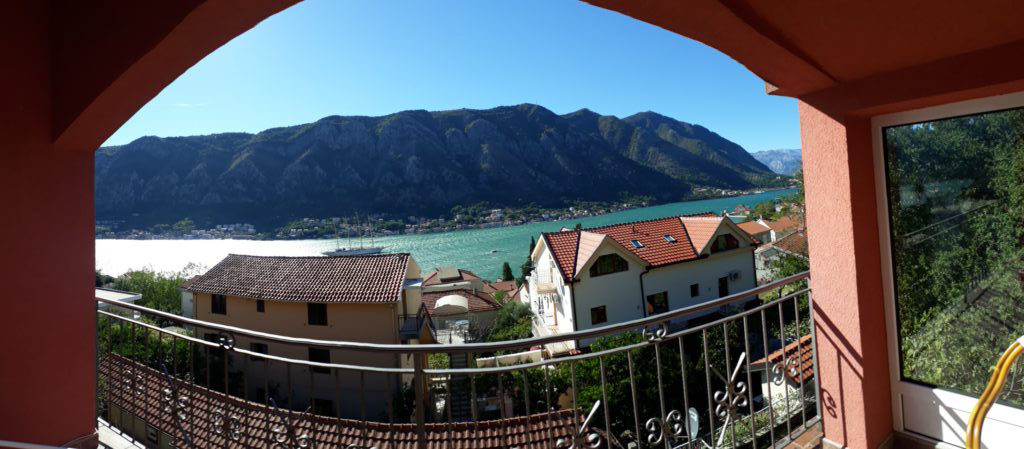
Montenegro is probably not usually on the top of peoples “to visit” list. A small country on the Adriatic sea with just over half a million people almost everyone who visits the country comes by ferry and visits only Kotor. Out of the 675 million people who vacationed somewhere in Europe last year only a measly 1.7 million of them visited Montenegro. While that is a very small number, it is actually almost three times the population of the small country. But why visit at all?
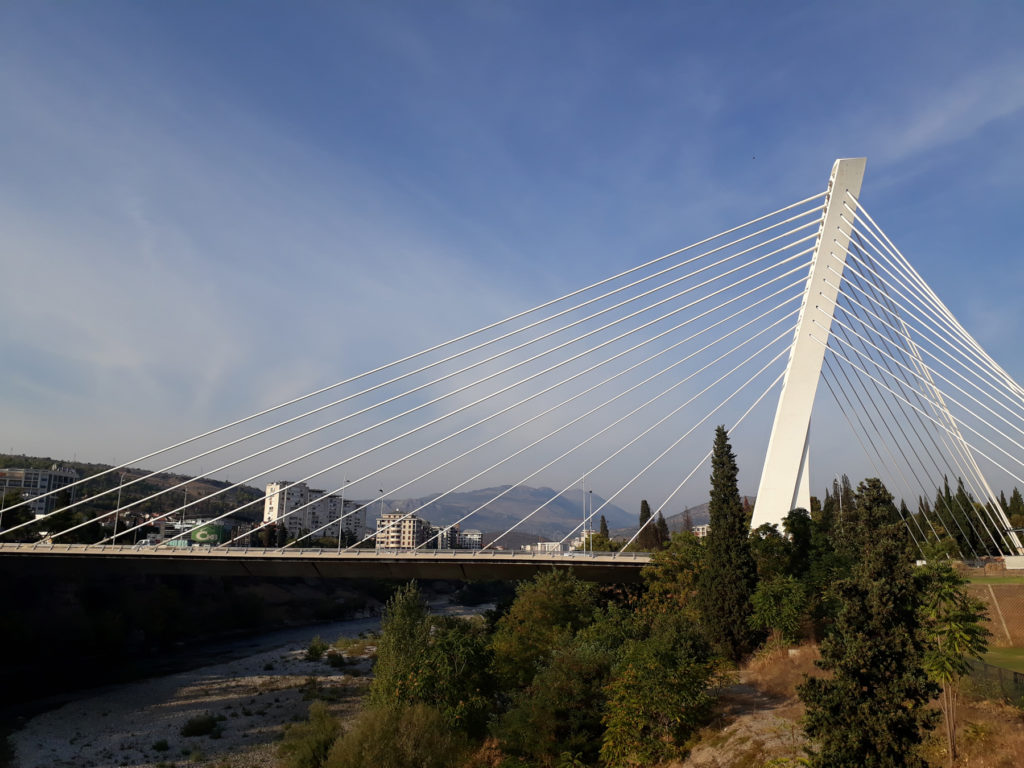
That’s a pretty difficult question it turns out. There is, after all, a surprising lack of classical things to do. There is only a single “major” city which seems largely unequipped to handle any amount of tourists. While it’s cheap to visit there are plenty of better bang for your buck cities like Prague or Sofia. In Montenegro there’s no pan-European ballet, no large scale museum scene, its historical relevance is out-shined by nearby Serbia, its infrastructure is in a constant state of neglect, and it lack all pretenses of a public transit system. There a few major hotels, almost no celebrated eateries, no upscale spas, and even if there were English comprehension is largely absent. But it’s probably the best place I have been yet.
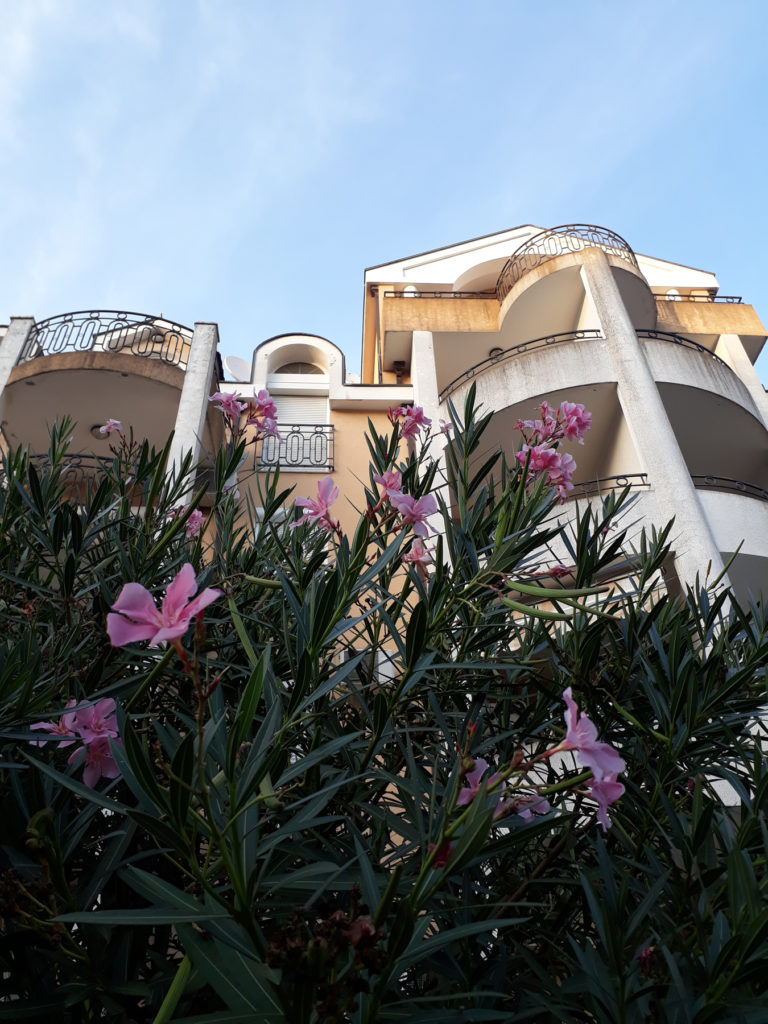
Montenegro is a project unfinished. Two major roads run through the mountains, half-paved, half-graveled with dust and dirt distractions lopping out into the meager countryside. One road funded by the EU, the other by Turkey. Buildings in the city center tower only four or five stories tall at most, many of them only one story with steel pipe jutting from the top of unfinished frames. Outside the city there’s a bridge over a valley that stops halfway, careening into a cavernous below. There’s a train station with half a building collapsed next to it. There are roads that simply dead end before they reach all the houses lining them. Empty lots lined with bricks and no workers. Buildings repaired on the bottom floors with ailing tops. Desperate for more. Wanting to be complete.
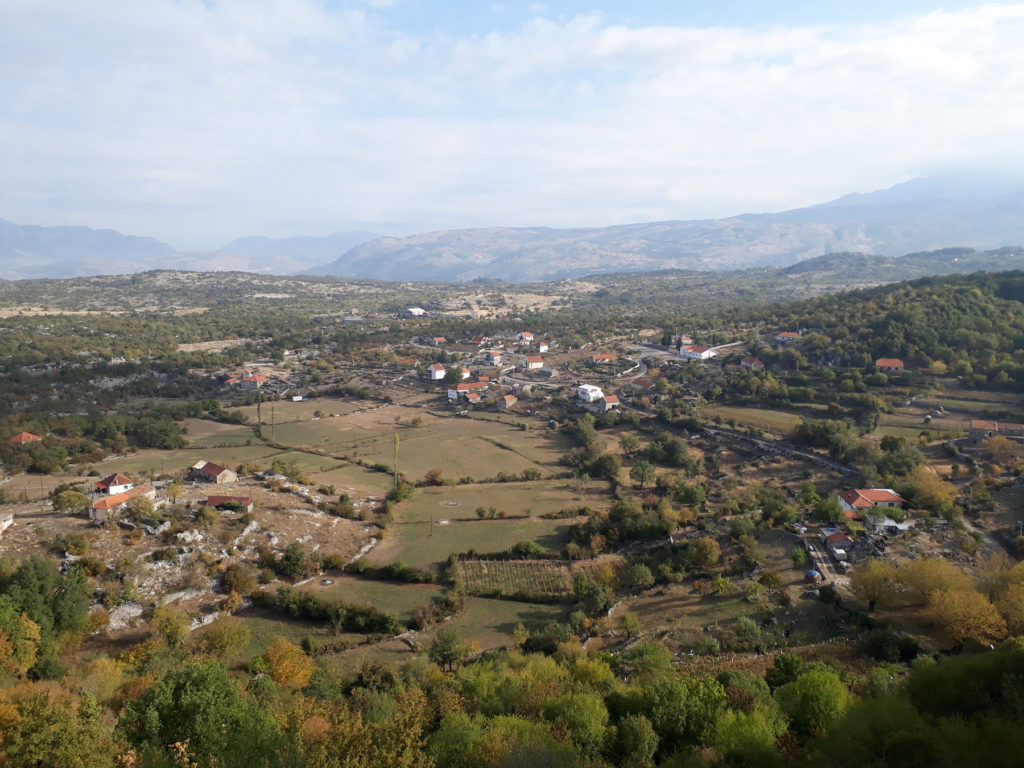
The countryside doesn’t fair better. Houses are spread out and dot the landscape, free to roam up the hills and down into the valleys, their roofs tiled in chalky red plates but the walls made from caked on layers of plaster, paper thin with cut out windows containing no glass, staircases made from concrete that remain un-sided, un-sanded, un-finished. Every house occupied has some piece missing but never vital. Open windows give ventilation, thin walls allow a cooling breeze, and even half-finished garages offer cover from the sun for animals and cars alike.
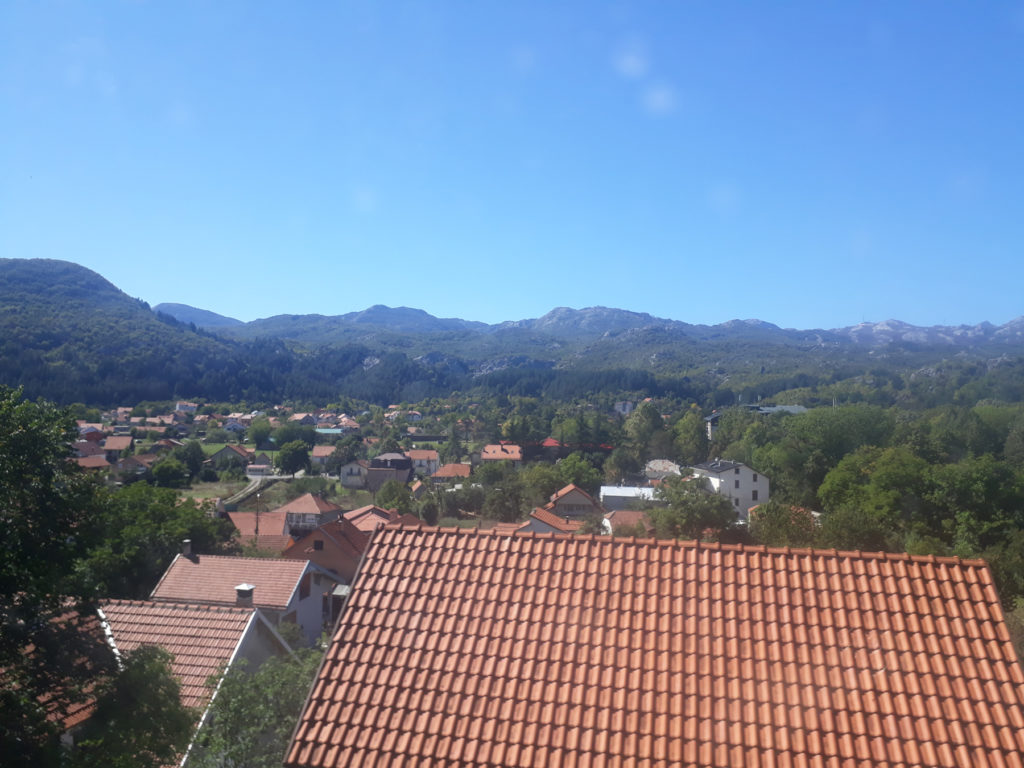
The air is heavy. Thick and warm, despite the fall coming into full effect in the rest of the world. The sky is hazy and while we visit they have a wind storm the likes that I haven’t seen in years. It knocks trees free, it sets fires across town, and it even manages to take the power out for a hours. We sit in a bar whose power is still on thanks to a generator from the hospital next to it and wait. The owner is unhurried and unaffected as we all watch the wind outside. He takes a drag on his thin cigarettes and sips from a shot glass. Thick, acidic alcohol. Stiff and golden like whiskey as he smiles slowly and his accent is clipped and sharp. He is like nearly everyone we meet in the country, soft and easy going with just a hint of trepidation.
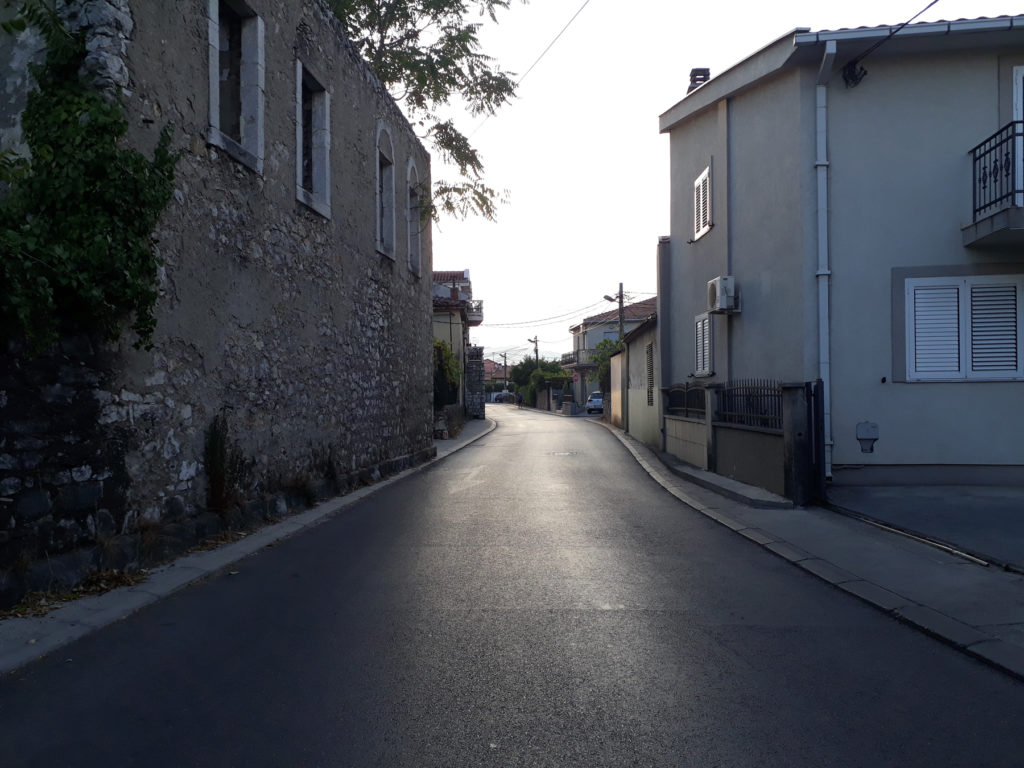
The people are wonderful beyond measure. In a restaurant where our host tells us to go, they speak Russian first and when we look distressed they ease slowly into mangled English. The serve us big beers and even bigger plates of meat and vegetables, grilled and spiced with a basket of four types of bread and no explanation. This happens again and again. People hand over food and they smile, you take the food and you eat it. This is the way of things. We eat things that echo of Russian cuisine, food stuffed in cabbage leaves and chunky fish soups. We eat things that remind me of Turkey, delicately spiced pies and malty, thick coffee. And even things more like Italian food, pizza that snaps in your mouth with bubbled pockets lining the edges and simple flavors and risotto that taste like the ocean – a kiss of salt pared with sweet shrimp. We eat farm cheeses and cured meats and pickled vegetables and cornbread that reminds me nothing of home.
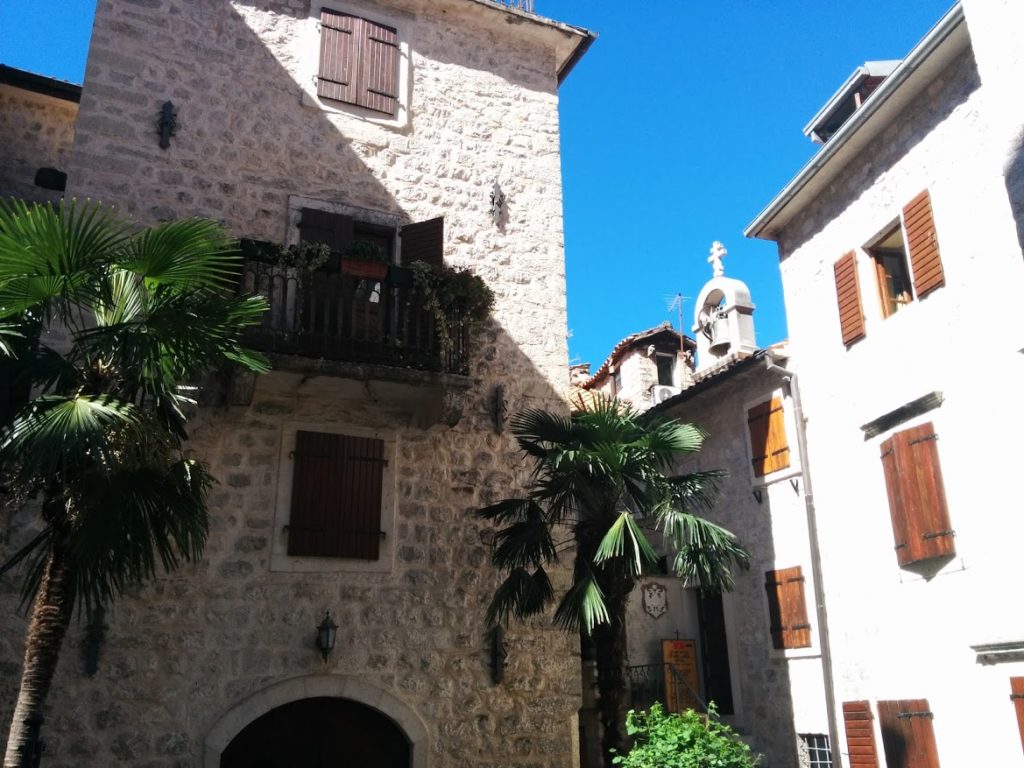
In one of the cafes there is a patio outside where a woman leans down to feed a piece of food off her plate to one of the stray cats. At the table behind us an entire family sits, eleven of them varying in age from toddler to grave. Everyone is hushed but happy. In the front a table of old men sit, a plume of smoke encircling them and as the song reaches a crescendo a burst of laughter from them. Cheering, coughing, more laughter, more smoke.
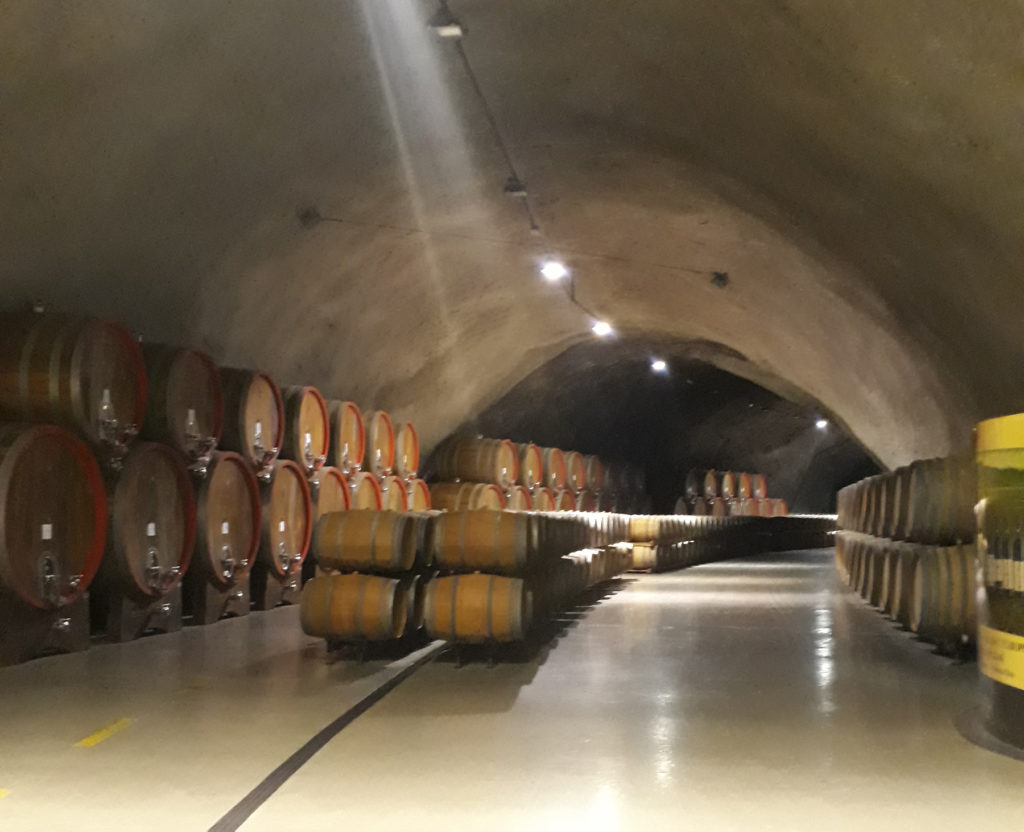
We drink local wine because it’s cheap and ubiquitous. We drink wine in an upscale hotel wine bar. We drink wine in a former secret underground aircraft hangar. We drink wine overlooking a river. We drink wine in the plaza. We even drink wine our hosts made for us, with grapes we pass every morning as we head to town. We drink that wine while looking at the bay from the balcony of our apartment. And every night after dinner, we drink rakija. We try to order it from the menu every time but no one lets us, it’s always only the one made in-house. It’s a gamble in every way. It comes in all manners of glasses and all levels of taste. Sometimes the rakija is little more than sharp, acidic tasting swill. Alcoholic tasting with a burn like bad vodka, little more than alcoholic vinegar. Sometimes it’s soft and sweet, thin with a good flavor that make it easy to drink like water. But it’s best when it’s rich. When the taste sits squarely in your mouth, just on the edge of sweet. Complex and strange with a warmth that filters through your blood, a warmth that takes the edge off life. Rakija that lets you breathe.
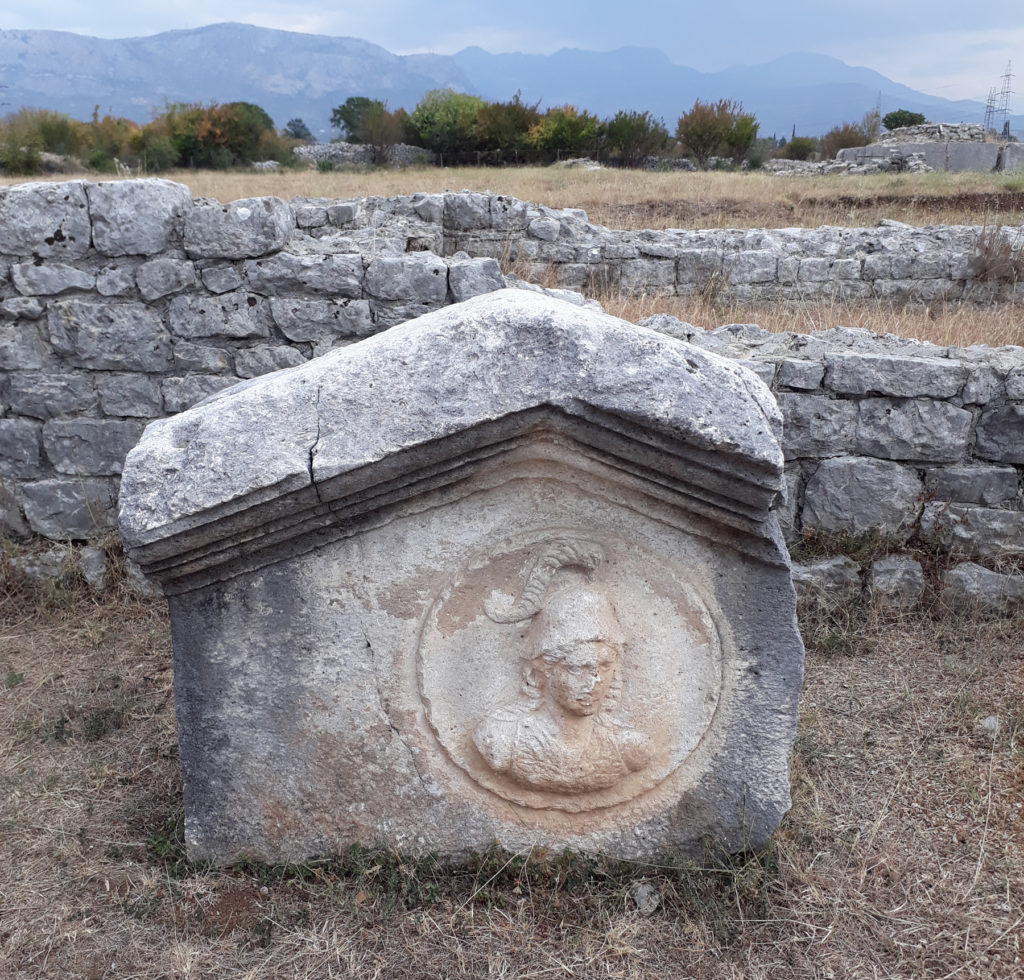
We climbed mountains a lot. We saw water. We stood in a large field that was populated some 1600 years ago. We crawled inside of a monastery in a mountain that was carved by a single man. The claustrophobic caves smelled old and worn, candles lined their insides and crude art filled up the walls skyward. We stood next to a river where small boats travel lazily towards nowhere from nowhere. On top of each peak seems to be an ancient church demolished but unforgotten as the newly dead are buried next to it, as if to remind us our history. In every village seems to live an old woman who is happy to see you. An old man who only knows the word “English” but offers to chat anyway.
Everyone we meet knows where New York is. Everyone we meet doesn’t understand why we are there. They are curious about America and Estonia and they are curious how we found them. How we can possibly like them after all that glamour we left behind.
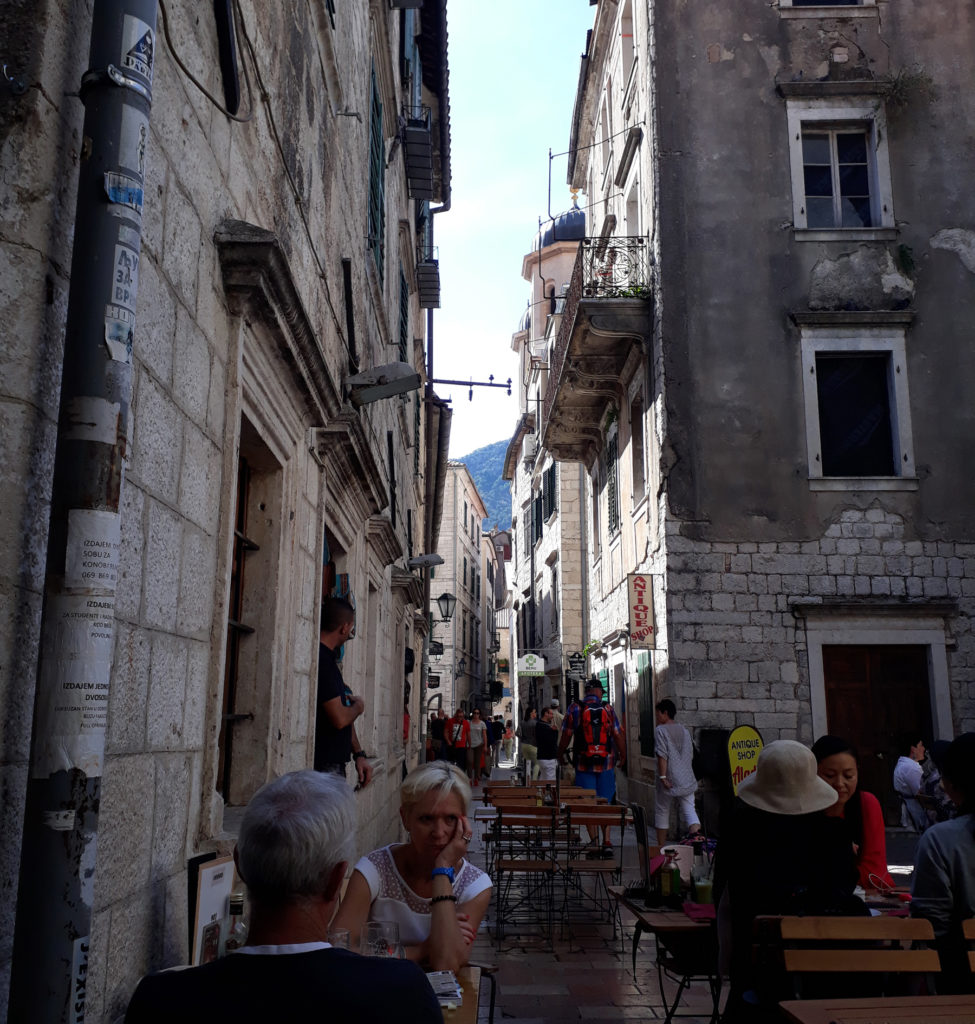
In Kotor it’s a little different. The main part of town is a tourist trap. Marble lined streets and cats. Bodies filling in every avenue during the high sun hours where the boats unload. Markets of souvenirs pop up and melt away with the sun, food leans into American inspired staples in many places, and the people are louder. Up-selling themselves and a dream. Hocking bags and meals and t-shirts on demand. But once you get outside the Old Town, it melts away again. Small shops line the streets, conversations in soft unhurried Montenegrin. Children play in the streets and everywhere, cats.
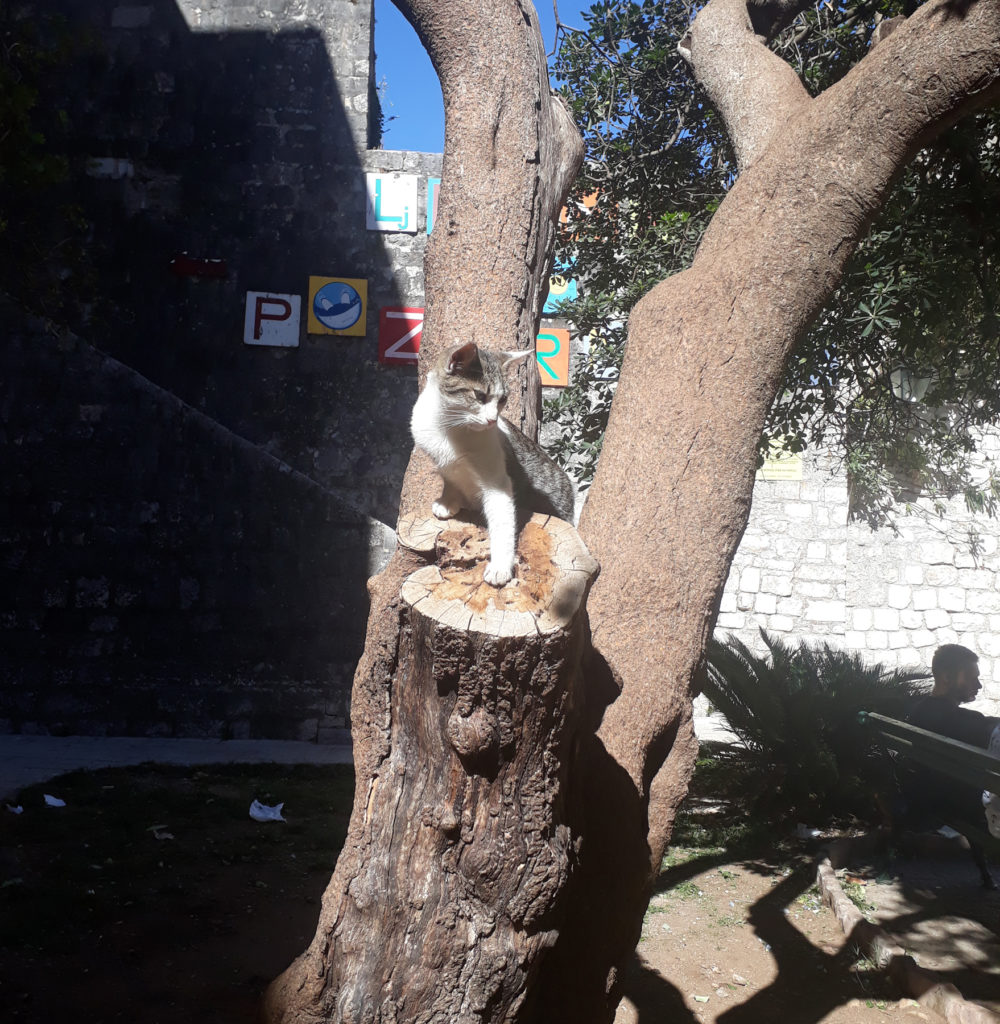
Cats fill up every each of the old town but they spill right down to Dobrota and even across the bay to Tivat. Cats lurk through the grapevines in front of every house, up and down the mountain side. They lounge on cars, on balconies, in flower pots and even one was so boldly sleeping on the roof of the local fish monger. They live among the people and they live beside them in their sleepy warm town. At the bus station the cats are fed by a young boy who takes care to pet each and every one who approaches him. In the old town they roll over and show their stomachs to tourists who greedily snap photos and coo at them kindly. The cats remind me of the Montenegrins, they are all thin and scrappy looking but they are kind and sweet. Strangely patient, never interfering with you but always welcoming.
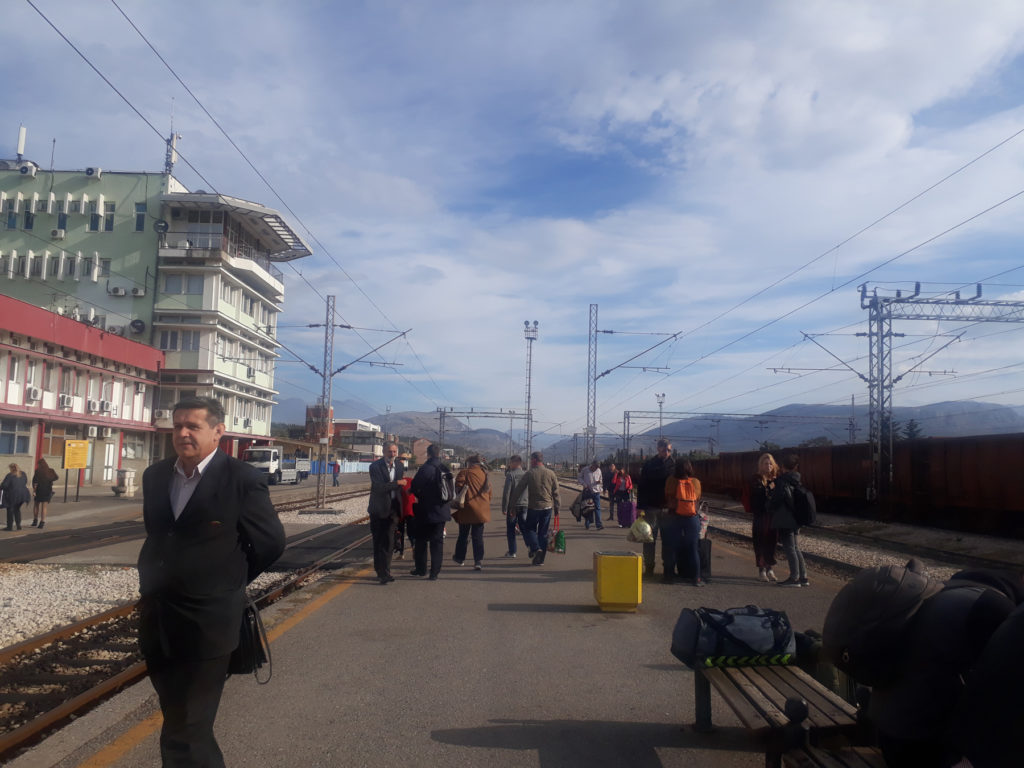
The transit in Montenegro leaves something to be desired. The airport is four rooms stapled together. The bus station looks too similar to a scaled-down version of the Greyhound station in Pittsburgh (a relic of a bygone era if there ever was one). The main form of transportation is car, and if not car, taxi. The train station looks like it is stuck in the 1940s, save for the single display of LED lights showing the time of the next train. The bathroom is even a squat toilet. The train itself has been in use since the 60’s with no major updates. But the journey is what matters.
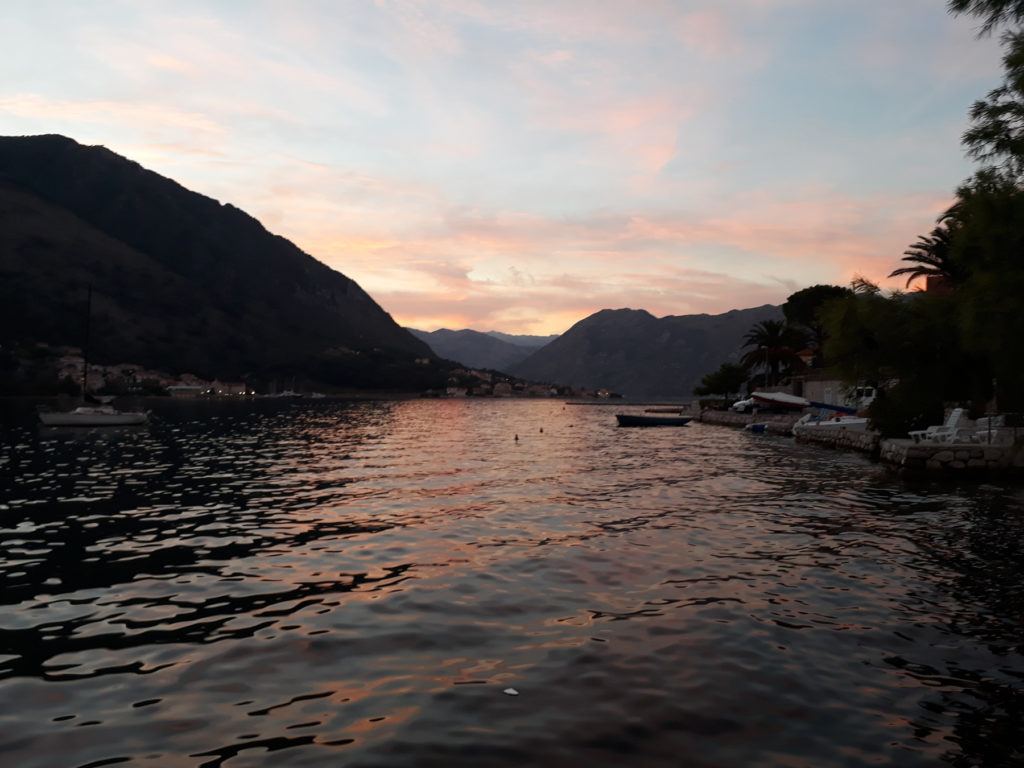
We take a taxi at dawn on our last day in the country to the train station. The taxi is filled with smoke (the whole country is filled with smoke) and we watch the sun rise across each town we pass. We stop at the edge of a cliff overlooking Budva, the ocean shining blue below and sun just starting to break, light splaying through the clouds and I feel a great stillness inside. It’s quiet here. And I am quiet here in a way I haven’t been in a very long time.
